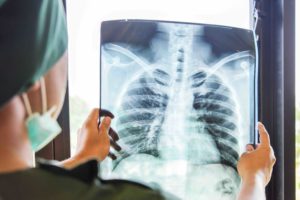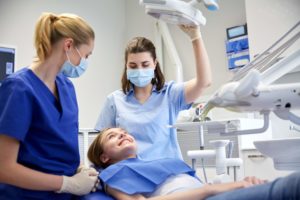The job outlook for Radiologic Technologist is good. There are more than a quarter-million jobs in radiography today and forecasters predict many thousands more during the coming decade.
The U.S. Bureau of Labor Statistics (BLS) says opportunities for Radiographers will grow faster than the economy overall. The BLS predicts 9% growth for Radiologic Technologists, compared to a 5% growth for jobs across all categories.
That’s good news for those who are preparing for their careers. The demand for healthcare, even before the Coronavirus pandemic, has been high for years and experts say it will continue to grow for the foreseeable future. “As the baby-boom population grows older, there may be an increase in medical conditions, such as cancer and Alzheimer’s disease, which require imaging as a tool for making diagnoses,” according to Labor and Statistics’ Occupational Handbook. “Radiologic and MRI technologists will be needed to take the images.”
And there’s more good news. The Occupational Handbook also points out that positions for MRI Technologists — the highest-paying subset of Radiology Technologists — will grow even faster, at an 11% rate between now and 2028.
More than half of Radiologic Technologists work in public or private hospitals. The remaining positions are in diagnostic labs, clinics and individual doctors’ offices. Most Radiologic Techs work full-time during normal business hours. But with emergency rooms and urgent care clinics open around the clock, many technologists work weekends and evenings.
The first step toward this promising career field, of course, is obtaining the proper training.
“Technologists who graduate from accredited programs and those with multiple certifications will have the best job prospects,” the Bureau plainly states.
That’s where Northwestern College comes in. The radiography program from Northwestern College is accredited by the Joint Review Committee on Education in Radiologic Technology. Graduates earn an Associate of Applied Science degree in Radiologic Technology.
During their time at Northwestern College, students practice performing diagnostic imaging exams, learning how to take x-rays and working as a liaison between patients and their physicians. By graduation day, students are prepared to work as clinically competent, entry-level radiographers, skilled in effective communication and adept at problem-solving. Graduates know how to position patients, practice radiation safety and evaluate radiographic images.
The Radiologic Technology Degree program, like all programs at Northwestern College, offers flexible class times in an environment designed to emulate the working world. Students receive training on the same equipment currently in use in top medical facilities. Once they’ve earned their degree, graduates can receive advanced training in MRI, radiation therapy, nuclear medicine, cardiac catheterization, medical sonography, mammography and computed tomography.
Ready for the next step? Take a closer look here.
The post Strong Outlook for Radiology appeared first on Northwestern College.
from
https://nc.edu/strong-outlook-for-radiology/?utm_source=rss&utm_medium=rss&utm_campaign=strong-outlook-for-radiology







